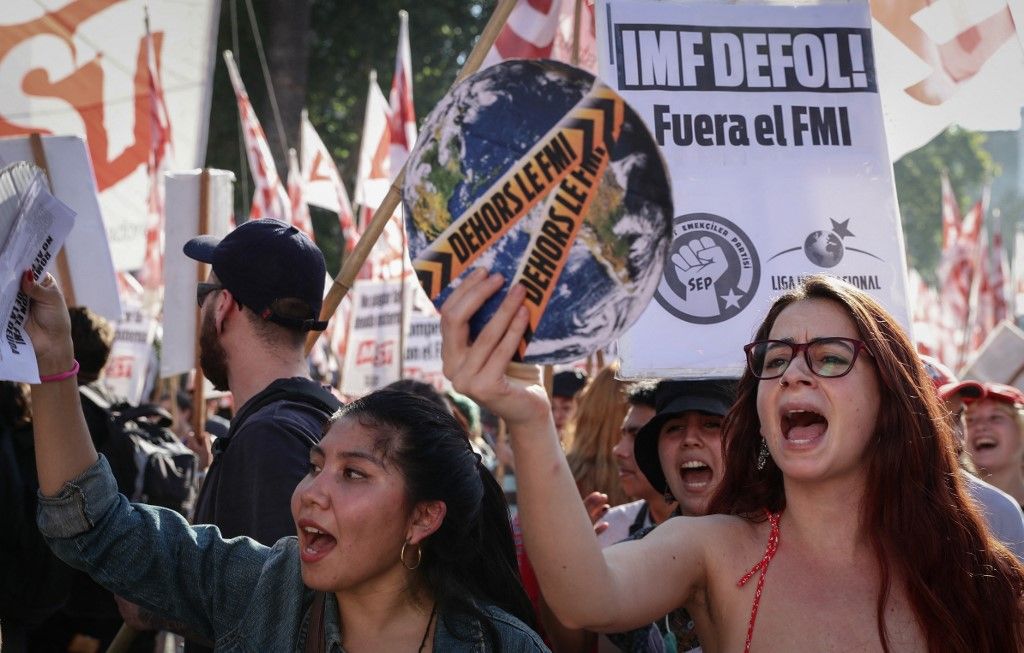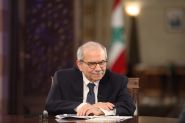
An official Lebanese delegation is heading to Washington, DC to participate in the IMF and World Bank Spring Meetings, carrying with it new promises and commitments aimed at pleasing these two international institutions. It seeks to convince them that Lebanon has indeed embarked on the path of reform and seeks to go even further by fulfilling all of the IMF's requirements, in pursuit of a final agreement on a financial assistance program.
The IMF has always been associated with major and attractive promises for countries, such as financial support, rescue programs, backing financial stability, restoring confidence, opening doors to external funding, returning to financial markets and more. But in truth, history also bears witness to the failures and additional financial hardships experienced by many countries after entering into IMF loan programs. In reality, the Fund’s programs have often failed to pull countries out of economic and financial crises; on the contrary, many were pushed into deeper collapse. Several countries received IMF loans but failed to restore their economies and even became hostages to the Fund—finishing one loan only to be forced into another. The IMF’s conditions are harsh, often ignoring human rights, and in many cases, they drain the capacities and resources of the state. The Fund uses a standardized set of “recipes” across all countries, which typically include:
• The IMF is a financial institution that provides loans under conditions, and ultimately needs to ensure these loans are repaid. Therefore, it does not enter programs with countries that cannot control their debt. One of its conditions is reducing the debt-to-GDP ratio, which requires cutting the state's financial obligations. (This was evident in Lebanese Cabinet Resolution No. 3 dated May 20, 2022, on the strategy to revive the financial sector, which included “cancelling a large portion of the Central Bank’s foreign currency obligations to commercial banks, to reduce the capital shortfall of the Central Bank and close its net open FX position.” This decision was later annulled by the State Council in February 2024, which affirmed that these amounts were borrowed by the state and that such borrowing was illegal. However, the Council ruled that the state remains indebted and must repay the banks, and thus the depositors.) Here, the government was aiming to implement the IMF's condition of reducing public debt and obligations.
• The state should bear no losses or costs, even if it is responsible for financial mismanagement, and no losses should be carried forward. In other words, if a country wants to enter into an IMF program, it must first write off all its losses and obligations. For Lebanon, this essentially means transforming the debt—confirmed by the State Council in February 2024, which is in fact depositors’ money—into losses that must be wiped out.
• Liberalization of the exchange rate and removal of all subsidies, especially on basic goods and services like flour, electricity, water, transportation and fuel—which has already happened in Lebanon.
• Reduction of social support programs, up to the point of eliminating all social protections, particularly health, education and social affairs benefits.
• Downsizing of the public sector and restructuring of salaries—meaning salary cuts—which has already occurred in Lebanon, a country that still has not undergone any real restructuring of its public sector.
• Increasing taxes and fees—which Lebanon has already implemented in the 2024 and 2025 budgets, while relying on debt for growth.
Legitimate Questions… But Who Will Answer Them?
Today, Lebanese authorities are trying to convince the people that signing an IMF agreement is a mandatory gateway for Lebanon’s return to financial markets and international funding. But fundamental questions remain:
• Does Lebanon truly need the IMF’s signature if it implements reforms, especially if it restructures its debt and reaches an agreement with its creditors?
• Does Lebanon need the IMF if it fairly restructures its banking sector in a way that protects both the sector and depositors’ funds?
• Does Lebanon need the IMF if it carries out structural and institutional reforms related to electricity, regulatory bodies, smuggling, tax evasion and the judiciary?
• Lebanon is rushing to meet the IMF’s conditions at any cost, passing laws described as “reformist” by their drafters, though they contain many flaws and weaknesses. What happens if Lebanon fails to reach a final agreement with an IMF that continues to impose impossible conditions?
• What if Lebanon approves this additional IMF quota payment, tying it to a financial program that might never materialize? We’re talking about $423 million, including a $100 million initial payment that could be used to fund infrastructure projects in Lebanon, such as the “completion of the Damascus International Highway” and others?
• And most importantly: What if former US President Donald Trump carries out his threat and decides to withdraw the United States from the IMF, which holds the largest individual share in the institution, over 16%? And what if other countries follow suit? Would the IMF still survive?



Comments